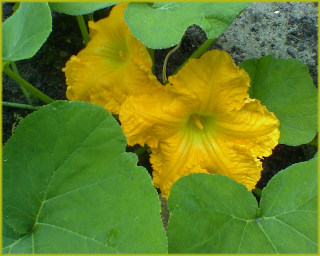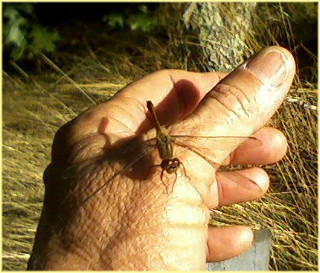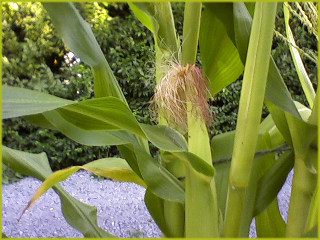Phases of the Moon, the newsletter of the Maine NVC Network
Issue Nine: Making Requests, Part 1
Our newsletter appears once a month around the time of the new moon. Our purpose is to contribute to the NVC learning of people who have taken at least an NVC Level 1 workshop, and help us stay connected as we endeavor to deepen a culture of peace within ourselves, our families and the world. We believe a Level 1 offers so many new ways of thinking that additional support for learning and integration could be helpful.
We endeavor to make each edition informative, connecting, inspiring and fun. Please let us know how the newsletter might contribute to your NVC well-being.
The theme for this issue is MAKING REQUESTS. This theme will be presented in two parts. This month’s feature will focus on CONNECTING REQUESTS. The theme will continue next month with a focus on ACTION REQUESTS.
Contents

- Feature: Exploring the Depth of Requests, by Peggy Smith, CNVC certified NVC trainer
- Suggestions for Practice
- Upcoming Trainings
- Poetry Corner: The Messenger, by Mary Oliver
- Celebrations
- Crossword
~ ~ ~ ~ ~ ~ ~ ~ ~ ~ ~ ~ ~ ~ ~ ~ ~ ~ ~ ~ ~ ~ ~ ~
Exploring the Depth of Requests
by Peggy Smith, CNVC certified NVC trainer
Over this summer I have come to see a parallel between an NVC dialogue and my gardening. The Observation is when I map out where the various plants will grow… noticing feelings is like preparing the garden’s soil. Exploring needs is doing the work of planting. Making Connecting Requests is the caring of each plant (weeding/de-bugging/watering/nourishing). Action requests of life-enriching strategies are how I harvest my garden of communication.
In past editions we have explored Observations, Feelings & Needs. Our current theme, "making requests" is presented in two parts. This month’s feature will focus on CONNECTING REQUESTS. The theme will continue next month with a focus on ACTION REQUESTS.
Connecting Requests - what are they? Why are they important?
The purpose of the Connecting Request is to make sure the person listening to me heard my words as an expression of myself and not as a judgment of him or her and that we feel connected to each other before I ask for a specific, do-able Action Request. A Connecting Request is a strategy to find out if I have been understood in a way that I want.
They may sound something like:
- Would you tell me what you heard me say?
- Would you tell me how you’re feeling hearing this?
- What emotions are coming up in you?
- I want to be sure I am expressing myself clearly, would you tell me what you heard me say?
- I'm really curious to know what's happening in you. Are you willing to share?
I use Connecting Requests after stating my Observation, Feeling, and Need - though not necessarily in this order; sometimes I put a connecting request in early in the flow of dialogue if I am concerned the other person may be feeling disconnected from me in any way or I realize I feel disconnected from them. I find that the most direct and simply-worded Connecting Requests work best for me. "Are you willing to tell me what you are hearing me say?" or "Are you willing to tell me what comes up for you when you hear what I just said?" or simply, "What’s up for you hearing this?"
This practice can work just as well within emails, "Are you willing to tell me what you are understanding after reading this?" or "Are you willing to tell me what comes up for you when you read this?"
Personally, I enjoy beginning most requests with "Are you willing to ___?" This strategy communicates that I want the other person to grant my request only from an internal place of choice and autonomy. My experience is that when my listeners understand that I care about their internal experience within a conversation, they are more open to me and I enjoy our connection.
So, even if what they answer does not resonate with my understanding of what I have said – my next statement will always be an expression of gratitude that they were willing to share. Making a Connecting Request in context might sound something like this:
Me: "Three days ago, I remember you saying you would call back in an hour and I still have not heard from you. Thinking about that now I feel curious because of the needs of understanding and connection. Are you willing to tell me what you are hearing me say?"
Friend: "You think I’m a jerk!"
Me: "Thank you for telling me what you think I’m trying to say. I was hoping to communicate a different message… would you be willing to let me try again?"
Then I wait to see what my friend says.
If my friend says "No, I don’t want to talk more about this," I want to honor that authenticity. If hearing "no" stimulates some pain for me, I will take time to draw on my empathy skills to be with myself in a caring and accepting way.
If my friend says "Yes, I am willing," I get to try to express myself again. I might decide that an empathetic guess could serve our connection more at this point than another honest expression.
"Three days ago, I remember you saying you would call back in an hour and I still have not heard from you. I wonder if you are feeling overwhelmed and exhausted because of your efforts to contribute to the project? (Connecting Request) Am I understanding what’s going on for you? Is there anything else you would like me to hear?"
Suggestion for Practice:For one week, invite yourself to S L O W down during one conversation a day. During that conversation add one Connecting Request (see feature article for examples). With a lot of gentleness, observe your inner reactions to making a Connecting Request. As you think about making the request - are you calm or are you tense, nervous or agitated in any way? Just notice. It is not that one way is better or worse than the other. Also notice any body sensations while you are making the request and after making the request. (By gently noticing my body sensations while working with requests in my own NVC journey I discovered a long held core belief about making requests - this awareness was vital to my growth.) Write down what you observe during that week. At the end of the week, reflect on what you wrote. What did you notice? Are you willing to renew this practice for another week? Do you have questions, celebrations, concerns, wonderings or comments about which you would enjoy support? If so, please contact the newsletter team.
|
Breathing into any tension I am experiencing during this conversation and holding firmly to my intention to connect will guide me to whatever words will help keep the flow of authentic communication moving toward connection. The Connecting Request is a tool to help me gauge whether we are communicating from heart to heart. It is a key piece that separates an NVC conversation from other types of dialogue. If I ask for an action without first ensuring our connection, there is a possibility my request either will be turned down or will be filled from a place of resentment – and sooner or later I will pay in a way I won’t enjoy. Remembering to make Connecting Requests takes a willingness to slow down. Any conversation worth having is worth taking time with. When we make the effort to slow down and ensure we are heart connected in the midst of a conversation, it is more likely the other person will say "yes” to the action request that usually follows, or at least be willing to explain why they are choosing to say "no." (This explanation can create a lot of heartfelt connection). |
In our next edition we will explore the elements of Action Requests. This is where we are nourished by the harvest we reap in the garden of communication.
Peggy Smith is co-founder of the Maine NVC Network and founder/principal trainer with Open Communication
Contact Open Communication for a presentation on NVC or Restorative
Circles for your organization or business.
~ ~ ~ ~ ~ ~ ~ ~ ~ ~ ~ ~ ~ ~ ~ ~ ~ ~ ~ ~ ~ ~ ~ ~ ~ ~ ~ ~ ~ ~ ~ ~
|
Crossword PuzzleThis is a fully interactive online puzzle; we aim to have a new one each month, relating to the issue's theme.
|
Upcoming TrainingsSept. 24–26, Unity, ME
|
Oct. 1–3, Portsmouth, NH
Radiant Relationships: a Level 1 NVC workshop with Peggy Smith
Would you like to deal with conflict more skillfully? Be sensitive to others without giving up your own needs? Deepen intimacy and have more ease within relationships? You will leave this workshop with practical concepts and skills you can put to immediate use. Whether you want to improve your relationship with yourself, your family, co-workers or community, your participation in this workshop will open new doors and expand your options. You will gain concrete skills for using daily conflicts to relate more authentically and compassionately – building trust in a multi-sensory learning environment that fosters safety, depth and fun.
Seacoast Wellness Center, 135 McDonough Street, Portsmouth, NH 03801


